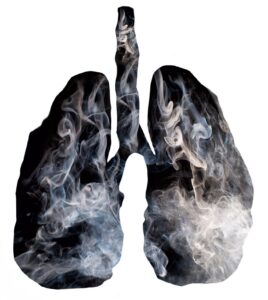
As a dentist, I’ve cared for smiles of all ages in Macomb County for over 25 years. Some of these smiles come to us with healthy teeth and gums while others come with challenges. In any event, our goal is to help every patient enjoy the benefits of good oral health. It is a fact that a healthy mouth can affect overall health and wellness.
Good oral health is known to support the immune system. And, research has found that the “bad” bacteria in the mouth can lead to the onset or worsening of serious health problems. These include heart disease, stroke, preterm babies, arthritis, diabetes, high blood pressure, erectile dysfunction and even Alzheimer’s disease.
Part of our commitment to care is to create informed patients. This enables each individual to use what they know to maintain good oral health between check-ups and cleanings. We understand that some patients have more challenges than others, due to genetic make-up, certain health conditions and history of care. However, one of the most difficult obstacles to a healthy smile and the prevention of gum disease (and subsequent tooth loss) is for patients who smoke.
While I have no intention of lecturing people on smoking, I believe it’s only fitting that we keep our patients informed of where their risks are as far as having a healthy smile. Smokers certainly know that it’s not a habit that’s good for them. However, knowing HOW it contributes to oral health risks can help smokers be proactive in maintaining better oral health. This can help in lowering the risks of costly repairs, tooth replacement, and treatment of gum disease.
First, let’s address the root of the problem in smoking – nicotine.
Nicotine delivered in any form (by smoking cigarettes or “vaping”), is harmful to the body. Whether cigarettes, “chew,” or e-cigarettes, the negative effects of nicotine to one’s smile include:
• Dry mouth – Nicotine from e-cigarettes reduces the saliva in your mouth, your mouth’s rinsing agent. Insufficient saliva flow can lead to “dry mouth,” accumulated plaque (and subsequent development of tartar), increased bacteria, and tooth decay.
• Receding gums – Nicotine restricts blood vessels, reducing blood flow to the teeth and gums. Without adequate blood flow, the gums fail to get sufficient oxygen and nutrients. This can cause the gum tissues to shrink, leading to gum recession. The results can include tooth sensitivity, a higher risk of cavities and tooth loss.
• Bruxism and tooth damage – Nicotine acts as a muscle stimulant, which can lead to tooth grinding (bruxism) or worsen already-existing problems. Grinding or clenching can lead to tooth damage, such as chipped, fractured or broken teeth.
There is some encouraging news, though. According to Michigan.gov, the percentage of adults who smoke cigarettes has been decreasing since 2011. As of the beginning of 2024, however, the habit still exists for over 15% of adults in the state. Another concerning statistic (from a 2022 report) is that 8.5% of women smoked while pregnant.
Unfortunately, many cigarette users have turned to vaping based on the perception that “e-cigs” are a safer alternative. Yet, in a 2018 report by the National Academy of Sciences, Engineering, and Medicine, there is “evidence that e-cigarette use increases the frequency and intensity of cigarette smoking in the future.”
Vaping, the use of e-cigarettes, is designed to deliver nicotine through an inhaled mist. While the mist is generally not labeled as harmful, its nicotine is no less harmful to the user as that delivered via cigarette smoke. The vapor contains known carcinogens and toxic chemicals, including, propylene or polyethylene glycol, glycerin, and additives. And, its nicotine is no less harmful to the user as that delivered via cigarette smoke.
Assuming that e-cigarette use (vaping) is a safer alternative is easily debunked by the CDC, who warn:
• While e-cigarette aerosol may contain fewer harmful chemicals than the smoke from burned tobacco products, the aerosol can contain cancer-causing chemicals and tiny particles that reach deep into the lungs.
• Most e-cigarettes contain nicotine, the highly addictive drug found in tobacco.
• In youth and young adults, nicotine can harm brain development, which continues until about age 25.
Of recent concern are manufacturers offering newer types of e-cigarettes. These use nicotine salts (also called “nic salts”), which deliver higher levels of nicotine. These are also easier to inhale and cause less throat irritation. Among the concerns are their increased potential for dependence.
Teens have been most susceptible to the hazards of vaping (the most commonly used tobacco product among U.S. youth). Nicotine exposure can harm the brain as it develops, until about age 25. During adolescence, nicotine use can affect learning, memory and attention span as well as increase their risk for future drug addictions.
In the FDA’s annual national survey of youth tobacco use, the percentage of high schoolers using tobacco products (including e-cigs) dropped from 16.5 to 12.6 from 2022 to 2023. However, middle schoolers’ use rose from 4.5% to 6.6%.
https://www.fda.gov/tobacco-products/youth-and-tobacco/results-annual-national-youth-tobacco-survey
Of course, all ages are negatively affected by nicotine. While it’s obvious that smoking cigarettes can stain teeth and cause bad breath, nicotine can cause problems that aren’t quite as obvious – at first.
According to the American Dental Association (ADA), smoking can cause the gums to recede from teeth, exposing vulnerable tooth root sections. This enables easier entry of oral bacteria into the structures that support tooth roots. Smoking can also delay healing after having periodontal therapy, extractions or implant placement. The longer it takes oral tissues to heal, the greater the risks for infection to develop.
Additionally, smoking increases the risks of oral cancer, lesions inside the mouth, periodontal (gum) disease, enamel erosion and tooth loss. It greatly reduces saliva flow in the mouth, which is a tremendous aid in removing bacteria and food particles from the mouth, helping to control bacteria levels. The condition of “dry mouth” also causes bad breath.
Typically, gum disease begins with sore gums that may bleed while brushing teeth. Or, it may exist with no noticeable symptoms in early stages. As it worsens, gum disease will cause frequent bad breath, tender gums that turn red, gum recession, and gums that bleed easily when brushing. Pus pockets may form on the gums. As it attacks the structures beneath the gum line, teeth may loosen or shift. For those who assume it will get better on its own, the disease will simply progress further.
As the nation’s leading cause of adult tooth loss, it brings the hard decisions (and expense) for replacement. After all, you need teeth for eating and speaking. Do you go with dental implants? Or, do you take on the challenges that come with dentures and partials?
In addition to your smile, there are some pretty strong reasons to “kick the habit,” including:
• Smokers have a decreased life expectancy of an average of 10–15 years compared to non-smokers.
• Smoking is linked to nearly a third of all cancer diseases and deaths.
• Pregnant women who smoke have a higher risk for first-trimester spontaneous abortion, preterm births, low birth weight babies and sudden infant death syndrome (SIDS).
• Women who smoke are at risk for early menopause while men who smoke are more at risk for impotency.
• People who breathe in your “second hand” smoke (what you exhale) are subjected to over 50 known carcinogens and other harmful chemicals.
As mentioned prior, we want our patients to be informed for the betterment of their overall health. We believe that by respecting each individual and supporting them throughout each stage of life, a healthy, confident smile can be a positive part of each day! If you have symptoms of gum disease, please schedule an exam appointment at your earliest convenience. And, if dental fear or other concerns have prevented you from regular dental care. you can begin with a no-charge consultation to discuss your needs, or watch a brief video at: DrBarbartDentalFear
To arrange a consultation, tap here or call 586-739-2155.
And, please allow me to introduce myself by viewing: MeetDrBarbat